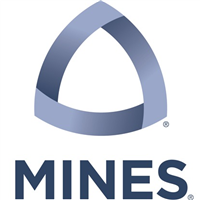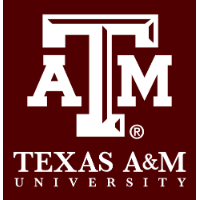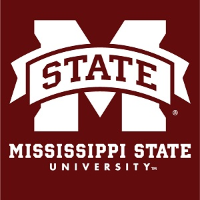What do they do?
Research the distribution, circulation, and physical properties of underground and surface waters; and study the form and intensity of precipitation and its rate of infiltration into the soil, movement through the earth, and return to the ocean and atmosphere.
Also known as:
Groundwater Consultant, Hydraulic Engineer, Hydrogeologist, Hydrologic Engineer, Hydrologist, Physical Scientist, Research Hydrologist, Scientist, Source Water Protection Specialist
-
3%
Change
Ranks #20 in job growth rate30Job Openings
Ranks #4 in net job growth
-
Colorado School of Mines
Golden, CO
-
University of California-San Diego
La Jolla, CA
-
Texas A&M University-College Station
College Station, TX
-
Mississippi State University
Mississippi State, MS
-
University of Rhode Island
Kingston, RI
Looking for colleges that offer a specific major? Use the College Match Tool to find your best-matched schools and discover your estimated Net Price!
- Doctorate or Professional Degree (12%)
- Master's degree (41%)
- Bachelor's degree (47%)
- Associate's degree (<1%)
- Some college, no degree (<1%)
- High school diploma equivalent (<1%)
- Less than high school diploma (<1%)
Most Popular Majors that prepare Hydrologists
-
#1
-
Degrees Granted
1,164
-
Female Students
549
-
Male Students
615
-
Median Starting Salary
$44,800
-
-
#2
-
Degrees Granted
194
-
Female Students
112
-
Male Students
82
-
Median Starting Salary
$44,800
-
-
#3
-
Degrees Granted
92
-
Female Students
46
-
Male Students
46
-
Median Starting Salary
$44,800
-
People in this career often have these skills:
- Critical Thinking - Using logic and reasoning to identify the strengths and weaknesses of alternative solutions, conclusions, or approaches to problems.
- Reading Comprehension - Understanding written sentences and paragraphs in work-related documents.
- Active Listening - Giving full attention to what other people are saying, taking time to understand the points being made, asking questions as appropriate, and not interrupting at inappropriate times.
- Science - Using scientific rules and methods to solve problems.
- Speaking - Talking to others to convey information effectively.
- Mathematics - Using mathematics to solve problems.
- Complex Problem Solving - Identifying complex problems and reviewing related information to develop and evaluate options and implement solutions.
- Writing - Communicating effectively in writing as appropriate for the needs of the audience.
- Active Learning - Understanding the implications of new information for both current and future problem-solving and decision-making.
- Monitoring - Monitoring/Assessing performance of yourself, other individuals, or organizations to make improvements or take corrective action.
- Judgment and Decision Making - Considering the relative costs and benefits of potential actions to choose the most appropriate one.
- Systems Analysis - Determining how a system should work and how changes in conditions, operations, and the environment will affect outcomes.
People in this career often know a lot about:
- Mathematics - Knowledge of arithmetic, algebra, geometry, calculus, statistics, and their applications.
- Physics - Knowledge and prediction of physical principles, laws, their interrelationships, and applications to understanding fluid, material, and atmospheric dynamics, and mechanical, electrical, atomic and sub-atomic structures and processes.
- Engineering and Technology - Knowledge of the practical application of engineering science and technology. This includes applying principles, techniques, procedures, and equipment to the design and production of various goods and services.
- English Language - Knowledge of the structure and content of the English language including the meaning and spelling of words, rules of composition, and grammar.
- Geography - Knowledge of principles and methods for describing the features of land, sea, and air masses, including their physical characteristics, locations, interrelationships, and distribution of plant, animal, and human life.
- Computers and Electronics - Knowledge of circuit boards, processors, chips, electronic equipment, and computer hardware and software, including applications and programming.
- Chemistry - Knowledge of the chemical composition, structure, and properties of substances and of the chemical processes and transformations that they undergo. This includes uses of chemicals and their interactions, danger signs, production techniques, and disposal methods.
People in this career often have talent in:
- Oral Comprehension - The ability to listen to and understand information and ideas presented through spoken words and sentences.
- Written Comprehension - The ability to read and understand information and ideas presented in writing.
- Oral Expression - The ability to communicate information and ideas in speaking so others will understand.
- Written Expression - The ability to communicate information and ideas in writing so others will understand.
- Problem Sensitivity - The ability to tell when something is wrong or is likely to go wrong. It does not involve solving the problem, only recognizing that there is a problem.
- Deductive Reasoning - The ability to apply general rules to specific problems to produce answers that make sense.
- Inductive Reasoning - The ability to combine pieces of information to form general rules or conclusions (includes finding a relationship among seemingly unrelated events).
- Mathematical Reasoning - The ability to choose the right mathematical methods or formulas to solve a problem.
- Category Flexibility - The ability to generate or use different sets of rules for combining or grouping things in different ways.
- Near Vision - The ability to see details at close range (within a few feet of the observer).
- Information Ordering - The ability to arrange things or actions in a certain order or pattern according to a specific rule or set of rules (e.g., patterns of numbers, letters, words, pictures, mathematical operations).
- Flexibility of Closure - The ability to identify or detect a known pattern (a figure, object, word, or sound) that is hidden in other distracting material.
- Speech Recognition - The ability to identify and understand the speech of another person.
- Fluency of Ideas - The ability to come up with a number of ideas about a topic (the number of ideas is important, not their quality, correctness, or creativity).
- Speech Clarity - The ability to speak clearly so others can understand you.
People in this career often do these activities:
- Prepare scientific or technical reports or presentations.
- Research hydrologic features or processes.
- Plan environmental research.
- Measure environmental characteristics.
- Record research or operational data.
- Research impacts of environmental conservation initiatives.
- Communicate results of environmental research.
- Supervise scientific or technical personnel.
- Analyze environmental data.
- Apply knowledge or research findings to address environmental problems.
- Calibrate scientific or technical equipment.
- Maintain laboratory or technical equipment.
- Develop mathematical models of environmental conditions.
- Collect environmental data or samples.
- Assess compliance with environmental laws.
- Evaluate civic projects or public policies.
- Develop environmental research methods.
- Review environmental permits, plans, or reports.
- Direct natural resources extraction projects.
- Provide technical information or assistance to public.
- Conduct climatological research.
- Compile geographic or related data.
- Analyze geological or geographical data.
This page includes data from:

 Occupation statistics: USDOL U.S. Bureau of Labor Statistics Occupational Employment Statistics
Occupation statistics: USDOL U.S. Bureau of Labor Statistics Occupational Employment Statistics
 Videos: CareerOneStop, USDOL/ETA and the Minnesota Department of Employment & Economic Development
Videos: CareerOneStop, USDOL/ETA and the Minnesota Department of Employment & Economic Development









